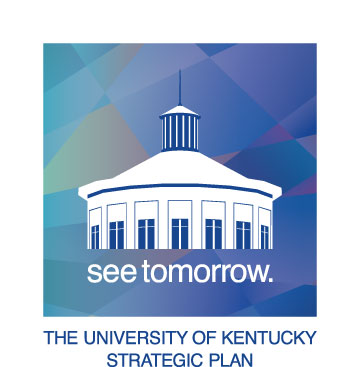by Sarah Geegan
 (Feb. 25, 2014) — The third speaker in the "see tomorrow Speaker Series," Kathi Kern, director of the UK Center for the Enhancement of Learning and Teaching (CELT), will engage with the UK community at 3 p.m. Thursday, Feb. 27, in the William T. Young Library Auditorium.
(Feb. 25, 2014) — The third speaker in the "see tomorrow Speaker Series," Kathi Kern, director of the UK Center for the Enhancement of Learning and Teaching (CELT), will engage with the UK community at 3 p.m. Thursday, Feb. 27, in the William T. Young Library Auditorium.
Kern, an associate professor in the UK Department of History, is an innovator in her own classrooms and brings energy and enthusiasm to her teaching. Her speech, "From the Ground Up: Faculty Innovation and the Future of Teaching and Learning at UK," will focus on pedagogy and innovation in teaching and learning.
Kern recently answered a series of questions about her experience and her upcoming presentation for UKNow:
On what topics will your presentation focus?
In this presentation, we will survey the national landscape of trends and challenges in teaching and learning in higher education and then highlight faculty innovations at UK. I will focus on changes in student experience and expectations; changes in learning environments and modalities; changes in technology that affect our teaching strategies; and faculty empowerment and development.
You have been described as an "innovator" in your classroom. What strategies do you use to incorporate this innovation, energy and enthusiasm into your teaching?
In terms of my own teaching innovations, I teach history, so I am always looking for opportunities to bring students into the discipline of history in active and creative ways. Over the course of my teaching career at UK, this has taken different forms. For over 20 years, I have taught history using "simulations" in which students study a historical event from multiple perspectives and then engage in debate over the meaning and impact of that event. As instructional technologies have changed, I have incorporated new technologies into this basic pedagogy. (In the "old days," we might stage a trial in class. With more virtual technologies, students might blog instead, or film interviews with the various witnesses to that trial and post them on Blackboard. Or we might do some combination of the two.) I have also been committed to making the process of historical research more visible and accessible for students. Why should students be positioned only as consumers of someone else's historical analysis?
Can you provide some examples of innovation in the classroom?
At the Center for the Enhancement of Learning and Teaching (CELT), we are committed to working with faculty to increase student engagement and improve student learning through innovative pedagogical approaches. Last year Arts and Sciences Dean Mark Kornbluh and I offered a course titled "America through the Lens of the 2012 Election." It was a great opportunity to put into practice some of our ideas on interactive teaching in a large-class format. We adapted a model of team-based learning where students worked within a six-person political "caucus" to do work together both in and outside of class.
There are many faculty on campus developing innovative learning experiences for our students. This can range from Bill Rayens’ work on “flipping the classroom” in his statistics courses, to Steve Davis’ use of Minecraft simulations to explore the history of Apartheid in South Africa, to Ellen Rosenman’s experiment with her “Texts and Contexts” class in which students researched the novel "Middlemarch" and generated a wiki for future readers. Faculty across campus have been expanding their teaching beyond the boundaries of the traditional classroom, for some that involves integrating service-learning into classes, linking course content with community organizations and the challenges they face. Other faculty have been piloting courses in a program called “Global Connections,” linking their classes to classes taught in other parts of the world and generating opportunities for our students to get more international experience, without even leaving our campus.
In this presentation, we will profile a few of these examples from across campus. The bottom line is that while we face sizeable challenges in teaching and learning, we have a talented, dynamic faculty who, with enough support, can respond to those challenges in creative ways.
